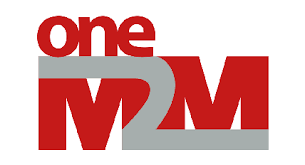StandICT.eu's European DIGITAL SME Alliance, a founding member of Small Business Standards (SBS), contributed to the achievement of a significant milestone in standardisation, as India formally adopted the oneM2M standard nationwide in 2020, aft…
Read time: 2 mins
The context
StandICT.eu's European DIGITAL SME Alliance, a founding member of Small Business Standards (SBS), contributed to the achievement of a significant milestone in standardisation, as India formally adopted the oneM2M standard nationwide in 2020, after years of dialogue between Europe and the Indian authorities. oneM2M is a comprehensive framework for IoT and machine-to-machine communication. Massimo Vanetti, a DIGITAL SME/SBS expert, advocated for the standard on several occasions. For instance, as a speaker at the C-DOT Foundation Day in August 2019, he detailed how oneM2M would help Indian SMEs grow their business by enabling interoperable and scalable IoT solutions in their large domestic market.
The challenges
The oneM2M standard directly addresses several ICT challenges in machine-to-machine communication:
- Identification of users and applications
- Authentication and authorization of users and applications
- End-to-end data encryption
- Remote provisioning and service activation
- Device management
- Connectivity setup and data transmission scheduling
- Data aggregation, buffering in case of missing connectivity and synchronisation upon connectivity re-establishment
- Group management and application and data discovery functions.
How standardisation activities help face the challenges
Explain how the standardisation activities help face the challenges oneM2M entails a global technical standard for interoperability concerning the architecture, API specifications, security and enrolment solutions for Machine-to-Machine and IoT technologies.
The Benefits
The oneM2M standard is outside the control of single stakeholders, allowing multiple parties to provide independent solutions. This benefits SMEs by allowing them to invest more resources into innovation, instead of in the technical specifications themselves. On a second level, SMEs who intend to adopt industrial IoT solutions can choose the ones they deem most suitable for their needs, given that thanks to the standard, a later change in provider will not require a full redesign of the whole project. This helps SMEs to comply with requirements at reasonable costs. Third, economic benefits are not limited to Indian SMEs. Due to their early adoption of oneM2M, many European SMEs were also able to access the Indian market with their tried-and-tested IoT solutions. Finally, this standardisation success story plays an integral part towards the EU's twin transition towards a green and digital economy, since it provides a "common language" through standards to comply with environmental goals. International adoption of the oneM2M standard is a practical manifestation of Europe's leadership in the digital age. With billions of connected devices over the globe, oneM2M can help different stakeholders to share data and help efficiently reach environmental goals.
Future plans
The oneM2M organisation is maintaining its work with all partner organisations - of which the European SDO ETSI is a part - in order to keep pushing for further use of this standard across the planet.


